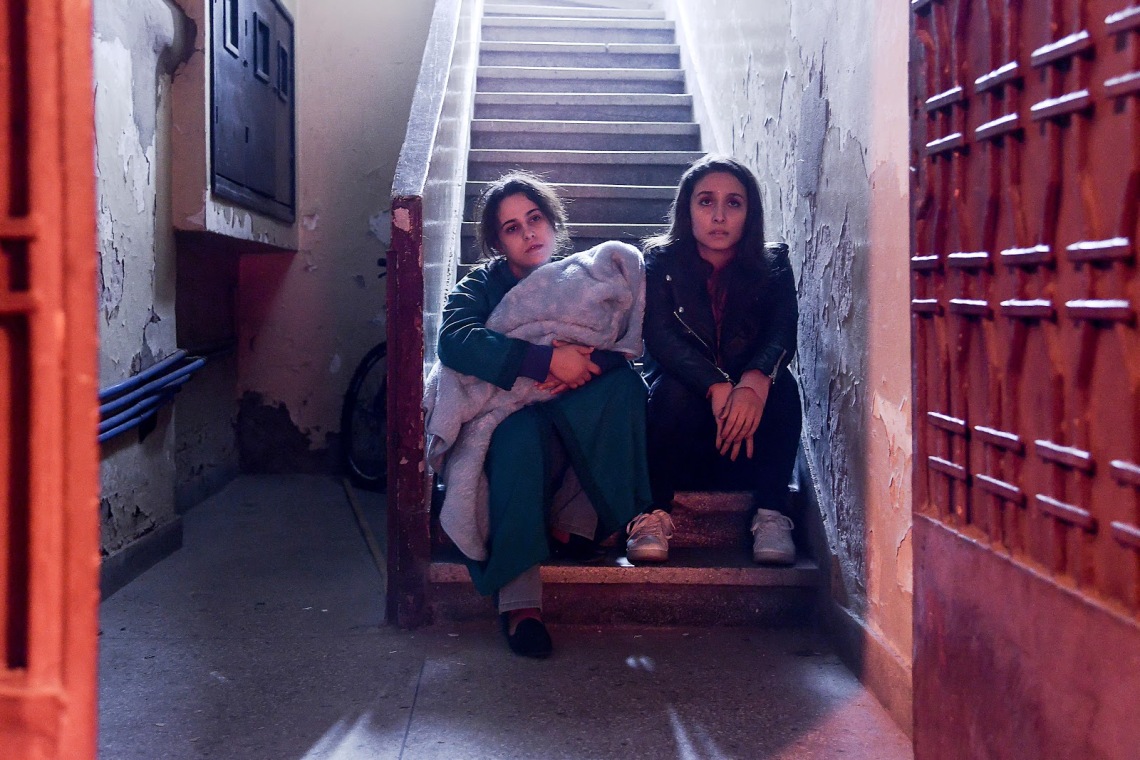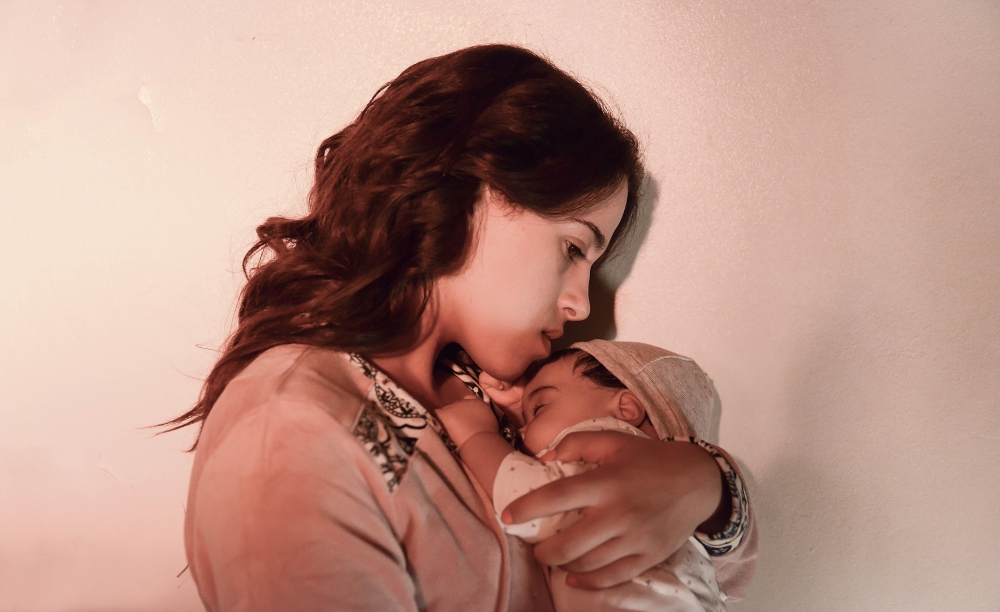★★★★☆
In short: a delicately directed and highly emotional drama set in contemporary Morocco highlighting stifling social inequalities and patriarchal tradition in a country where the stigma of unmarried mothers is still deeply ingrained. Top notch acting by Sarah Perles and Maha Alemi.

The statement at the beginning of “Sofia” sets the subject of the film without ambiguity: according to Moroccan law, unmarried women or men who engage in sexual relationships face up to one year of imprisonment. Meryem Benm’Barack latest feature, presented at the “Un Certain Regard” official selection at the 2018 Cannes film festival, offers a rich, candid look at today’s persistently unequal and patriarchal Moroccan society. On its façade of modernity and economic development the cracks are easy to spot and the weight of tradition and religion offers little hope for social mobility. In Morocco if you are born poor you will die poor. Arguably the same prevails in the UK but perhaps with a little more (apparent) individual freedom. Set in Casablanca, Morocco’s economic capital, “Sofia” tells the story of a 20-year-old girl who accidently discovers that she is pregnant and that her labour has begun at a family dinner. Her posh and attractive cousin Lena, who is a medical graduate, takes her under her wing and drives her to the hospital to give birth while remaining vague about the reasons with the family. It’s the start of a descent into the abyss for Sofia who goes from shock to shock: realising that she is pregnant, that she must give birth immediately, that she can only do this secretly or else the hospital will report the unlawful birth to the police, that she needs to leave the hospital straight after giving birth, that she must find the father of her child on that same night. The stress she is going through is only made worse by the constant calls Lena is receiving on her mobile from a worried family. So, in the middle of the night, Sofia and Lena knock on the front door of a shabby looking apartment in Derb Sultan, Casablanca’s working-class neighbourhood, and hope to get a dishevelled and dumbfounded young man called Omar to recognise his child.

While the beginning of the film is set up like a fast-paced drama as Sofia is trapped in a downward spiral with apparently no viable outcome, the film then moves into a slow negotiation process between families to “resolve” the situation. It’s a character study where the viewer has more time to observe the cultural and socio-economic divide between Lena’s wealthy, entrepreneurial, francophone family, Sofia’s middle-class parents who see their sinful daughter’s inevitable wedding to Omar as definitive obstacle to their social progression – which was just around the corner with the promise of a big contract with a French businessman – and Omar’s widowed mother who sees, on the contrary, an opportunity for her son to get his act together and marry into a well-to-do family. The characters are all very well written as they reveal their depth and complexity as the story unfolds. Lena appears as the confident, intelligent and caring cousin, but the cruel reality is taking its toll on her youthful idealism. Sofia first appears like a victim of her own ingenuousness but reveals herself as a much stronger, smarter but also more bitter woman than she perhaps first appears to be. Her parents, who are well-educated and loving in the earlier part of the movie appear to be completely overwhelmed by the situation and the unbearable weight of social judgement. Ironically in a society that places marriage and childbirth as the ultimate signs of success and happiness, those are the two saddest events in the film which cause most grief to Sofia and those around her.

Benm’Barack films her characters beautifully. Close enough for the viewer to feel the range of extreme emotions they go through from shock to anger, pain, sadness, guilt, anger, compassion, shame… But not too close, and therefore avoids any form of voyeurism or manipulation. Maha Alemi (Sofia) and Sarah Perles (Lena) are beautifully cast and form a very complementary leading duet, both psychologically and physically. Hamza Khafif (Omar) appears as an odd pick at the start as he sticks out with his bohemian, poet style, but as the story develops he comes into his own and becomes truly believable. Benm’Barack skilfully portrays the different lifestyles that cohabit in Casablanca, with some scenes looking inevitably staged, such as the family discussions and meals, but giving the film a real sense of place and time. With its vibrant, sun-drenched colours and varied cityscapes, the film not only demonstrates a genuine understanding of the dynamics of Moroccan society, it shows a deep connection with her home country that is at the same time beautiful and ugly, diverse and unfair (both for women and men of lower classes), cruel and loving. Benm’Barack touches on very serious topics in an elegant and respectful way, with the hope that the film might slip through the net of film censors in Morocco and get seen by local audiences. This could spark debate and get people thinking about the inadequacies of outdated legislation. And this is no small issue: according to Benm’Barack 150 women give birth outside of wedlock in Morocco, exposing them to prison sentences and social disgrace. “Sofia” is a gripping social drama that strikes the right note thanks to outstanding performance and discerning, authentic directing.
Sofia by Meryem BENM’BAREK (MAR)
Cast: Sarah Perles, Maha Alemi, Lubna AZABAL, Faouzi BENSAÏDI, Hamza KHAFIF, Nadia NIAZI, Rawia
Drama
2018, France/Qatar, 35mm, 80min
UK release date: TBC


wow that sounds like a really really cool story, thanks for sharing this x